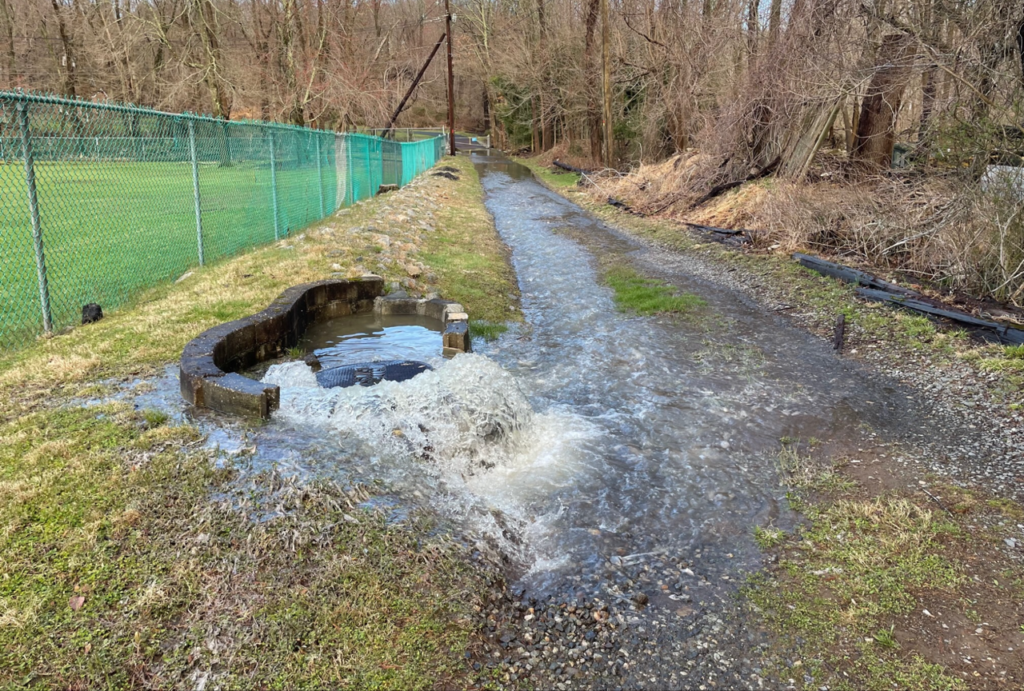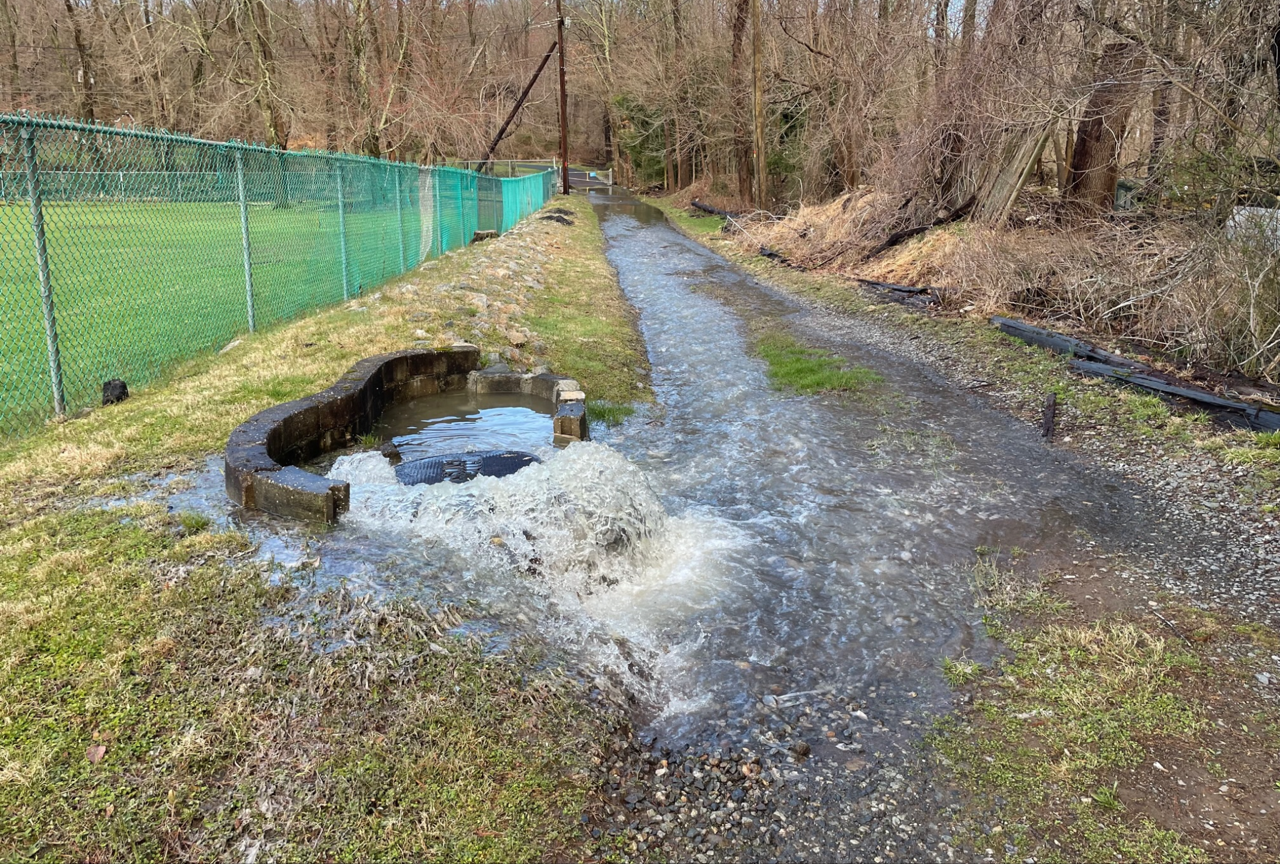Foil: Your right to Know.

“State environmental inspectors have again cited the Hillside Avenue religious bath house construction project for not controlling water runoff, leading a New Jersey government to hire an attorney to investigate potential damages across the border.
During a June 2 inspection, a state Department of Environmental Conservation inspector found runoff water being discharged into an adjacent stream in violation of water quality standards.
The groundwater was being pumped from the mikvah construction site into a sediment basin already full of turbid cloudy water. Turbidity is a measure of the degree to which water loses its transparency due to the presence of particulates such as clay, silt and other organic or inorganic material.
The DEC violation notice tells the operator the agency’s general counsel will review the issues for enforcement. The owner faces a maximum fine of $37,500 per violation per day of a State Pollutant Discharge Elimination System (SPDES) General Permit for Stormwater Discharges from Construction Activity under state Environmental Conservation Law, according to the notice.
The inspector issued the violation notice to Yankie Goldbrenner on behalf of the family-operated Hillside Mikvah Inc. Goldbrenner didn’t return a telephone phone message seeking comment at his Raymond Avenue home.
The mikvah is located in Ramapo across Hillside Avenue from a massive cemetery in Airmont, which is being built on 18 acres and also has been the subject of environmental issues.
In a statement on Tuesday, the DEC said the agency “continues to monitor both sites to ensure compliance with DEC regulations to protect public health and the environment. DEC will take further enforcement action if necessary.”
The mikvah owners have been previously cited by the DEC for violating environmental laws at the construction site.
For the construction of the 37,109-square-foot mikvah, the owners cleared a house and trees on 3.17 acres across three properties. Plans call for the ritual communal bath to have 48 prep rooms and 60 parking spaces..
Disapproval: Rockland disapproves of Airmont mikvah before Ramapo Planning Board.
Special Report: Whose Airmont is it?
Archives: Ramapo nears breaking point
County, environmental concerns
The mikvah received Ramapo land use board approvals even after the Rockland Planning Office disapproved of the mikvah, contending the building, among other reasons, is too large for the acreage. The Ramapo Planning Board and Zoning Board of Appeals, which approved variances to the zoning code to allow construction, overruled the county.
The mikvah property is across from a construction site for the Har Shalom Cemetery, which involved massive tree clearing and some wetlands. The U.S. Environmental Protection Agency has inspected the cemetery site and its wetlands, but has not taken any action.
The DEC cited the Har Shalom cemetery in September and December for not installing erosion and sediment controls, contending that “may lead to contravention of water quality standards,” according to a January DEC notification letter to Berel Karniol, a developer and property owner in Ramapo.
Yet, residents complain the two projects and a proposed school have changed their quality of life. They cited flooding down Hillside Avenue, backyards immersed in silt and water, increased traffic, and tree-clearing. Some residents also are concerned about the potential leaching of chemicals and fluids into the aquifer from decomposing bodies from the cemetery.
Homeowners, NJ borough take action
Two legal actions by residents supported by CUPON-Mahwah against the land-use board approvals have been dismissed by Rockland judges. Heather Frederico, head of CUPON-Mahwah, said the grassroots group is raising funds to help pay for appeals.
“All of these issues – flooding, sewer overflows, and water contamination – were brought up during the planning process of the mikvah,” Federico said.
She said homeowners provided videos of the degradation of their properties.
“The SEQRA review was a joke,” she said, noting the flooding and other results of the construction. “Now the Saddle River is brown every time it rains and properties are being damaged. Who is going to pay for this? What will happen once the project is finished.”
The New Jersey borough of Upper Saddle River is taking notice.
On June 2, the Upper Saddle River board hired attorney Michael Burke, contending in a resolution that the borough requires professional legal services pertaining to environmental issues relating to properties in Rockland.”
Read the complete Journal News coverage here and click on the links in the above article for additional information from past coverage of the issues in the Journal.





